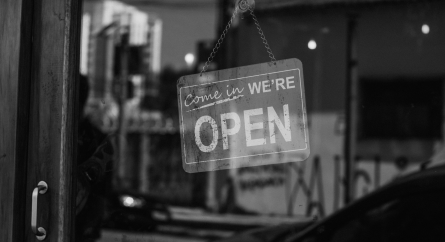Is a Business Liable if an Employee or Customer Gets Sick?
On April 28, 2020, Governor Charlie Baker extended an emergency order requiring nonessential businesses in Massachusetts to remain closed until May 18th. While the reopening timeline remains uncertain, employers should start preparing now to comply with all workplace safety laws once employees return.
Importantly, the Occupational Safety and Health Act requires employers to provide a workplace “free from recognized hazards that . . . are likely to cause death or serious physical harm” to their employees. OSHA and the CDC have prepared guidance to help employers understand their obligations surrounding workplace safety in the time of COVID-19.
There has been a push to place limitations on an employer’s liability for COVID-19 infections stemming from the workplace. President Trump issued an Executive Order that reportedly will be used to provide liability protections for employers in the meatpacking industry. Business groups are lobbying Congress to consider legislation that would broadly limit liability for employers due to COVID-19 infection in the workplace. In the absence of legal authority limiting an employer’s liability, businesses should ensure that their reopening plans are compliant with all local and federal guidelines regarding workplace safety. While best practices will vary by industry and geographic community, the precautions listed below provide a general start for most businesses.
1. Design and implement policies that promote a healthy work space.
- Designate a workplace coordinator who will be responsible for COVID-19 issues in the workplace and ensure employees know the protocol for expressing concerns about their own or a coworker’s health.
- Screen employee health by taking temperatures and asking employees ADA-compliant questions about symptoms, such as “Are you experiencing any of the following symptoms of COVID-19: cough, fever, difficulty breathing, etc.” Require employees displaying symptoms of COVID-19 to stay at home and consider adopting leave policies that encourage them to do so.
- Train employees on how to reduce the spread of the virus including social distancing, spotting symptoms, coughing and sneezing etiquette, and proper use of personal protective equipment (PPE).
- Mandate use of face coverings and other appropriate PPE in common areas and wherever employees cannot maintain a safe space between each other.
- Encourage handwashing and provide soap or hand sanitizer with at least 60% alcohol.
- Distribute and post in a visible place CDC materials applicable to the workplace.
2. Limit physical contact between employees on-site.
- Encourage employees to work from home or use flexible work schedules where possible.
- Stagger work shifts so that employees do not arrive at or depart from the workplace in large groups at the same time.
- Reconfigure work spaces to maintain a safe distance between on-site employees.
- Routinely disinfect frequently touched objects and surfaces.
- Prohibit shared use of equipment.
- Utilize or install physical controls where feasible such as clear plastic sneeze guards or drive-through customer service windows.
3. Be mindful of existing obligations that may now apply in a new light.
- Refrain from retaliation against employees who take approved COVID-19-related leave under the Families First Coronavirus Response Act (FFCRA).
- Provide reasonable accommodations as required by the Americans with Disabilities Act (ADA) for employees whose disabilities may develop or be exacerbated by COVID-19.
- Comply with all applicable laws governing the disclosure of employee health information.
- Permit employees to collectively protest working conditions and raise safety-related issues as required by the National Labor Relations Act (NLRA).
Categorized: COVID-19 Resources, Employees, Owning the Brewery, Policies
Tagged In: coronavirus, COVID-19, workplace safety












